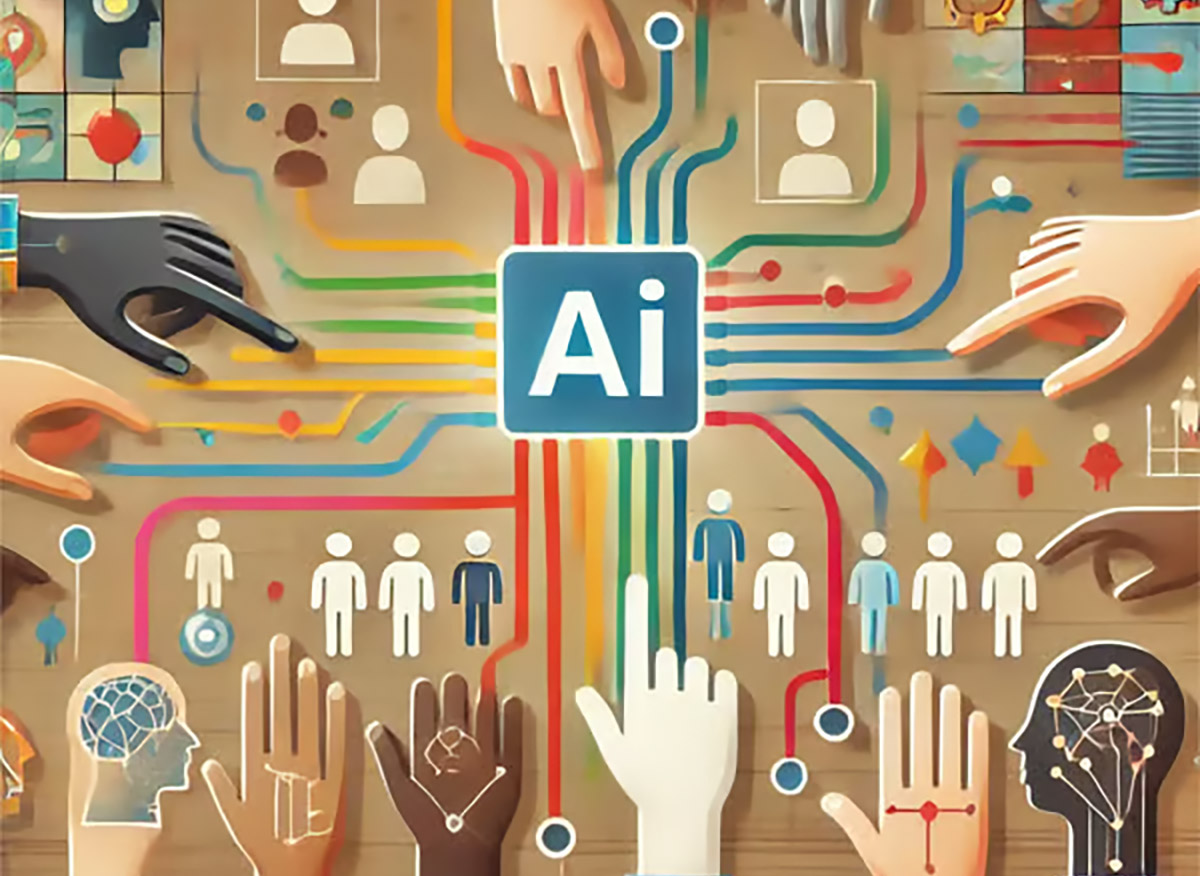Artificial intelligence systems are increasingly shaping our daily lives, influencing everything from the content we consume on streaming platforms to our potential matches on dating apps and even critical financial decisions like mortgage eligibility.
But there’s a big problem: the information used to teach these AI systems often doesn’t include sufficient data about people from different marginalized communities. This leads to unfair results.
Why is this happening? For a long time, these groups have been left out of studies and data collection. This old problem is now causing new issues with AI. To help solve it, three organizations — Hacks/Hackers, The Real News Network and Baltimore Beat — are holding an event called “AI for Equity: Tackling Harmful Bias in the Information Ecosystem.”
One example of AI bias comes from recent research conducted at Lehigh University. In an experiment using leading commercial large language models (LLMs) to evaluate loan application data, researchers found a troubling trend. The results, published in August, revealed that LLMs consistently recommended denying more loans and charging higher interest rates to Black applicants compared to otherwise identical white applicants. This experiment underscores how AI can inadvertently validate and potentially amplify historical and ongoing racial disparities in homeownership.
In medicine, while AI is being employed to assist with medical diagnoses, studies have shown that these systems don’t perform as well for women and people of color. Encouragingly, researchers suggest that retraining AI models could improve their fairness and accuracy across diverse populations.
In an era where information integrity is paramount, ensuring fairness in AI-driven news systems is more critical than ever.
The news industry is increasingly leveraging AI for content creation, distribution and analysis. However, the risk of perpetuating cultural, racial, or gender-based biases remains a significant challenge. In an era where information integrity is paramount, ensuring fairness in AI-driven news systems is more critical than ever.
Our “AI for Equity” event will bring together people who tell stories, community leaders, and people interested in AI to figure out how we can use AI to spot, reduce, and get rid of bias in news and information.
Hacks/Hackers is an international grassroots community that unites journalists (“hacks”) and technologists (“hackers”) to shape the future of media and explore innovative ways of storytelling. The Real News Network (TRNN), a nonprofit news organization based in Baltimore, focuses on urban issues such as crime, education, and housing, while Baltimore Beat is a Black-led, Black-controlled nonprofit newspaper dedicated to serving underrepresented communities and providing free, accessible news that reflects Baltimore’s majority Black population.
Why are we doing this in Baltimore? Most talks about AI happen in big tech cities like New York and San Francisco.
We picked Baltimore because it’s a city where most people are from minority groups. We want to hear from different kinds of people who care about how AI is developed. We think local communities should have a say in how technology is created and used.
This event is a first step towards making AI fairer for everyone. We want AI to properly represent and work well for all communities. By getting tech experts, journalists, and community members to work together, we hope to create AI systems that are fair and inclusive for everyone, no matter what they do or where they come from.
Register to join us on Friday and Saturday, Oct. 18-19 and let’s come up with some creative solutions.
Before you go...
Please consider supporting Technical.ly to keep our independent journalism strong. Unlike most business-focused media outlets, we don’t have a paywall. Instead, we count on your personal and organizational support.
3 ways to support our work:- Contribute to the Journalism Fund. Charitable giving ensures our information remains free and accessible for residents to discover workforce programs and entrepreneurship pathways. This includes philanthropic grants and individual tax-deductible donations from readers like you.
- Use our Preferred Partners. Our directory of vetted providers offers high-quality recommendations for services our readers need, and each referral supports our journalism.
- Use our services. If you need entrepreneurs and tech leaders to buy your services, are seeking technologists to hire or want more professionals to know about your ecosystem, Technical.ly has the biggest and most engaged audience in the mid-Atlantic. We help companies tell their stories and answer big questions to meet and serve our community.
Join our growing Slack community
Join 5,000 tech professionals and entrepreneurs in our community Slack today!

The person charged in the UnitedHealthcare CEO shooting had a ton of tech connections

From rejection to innovation: How I built a tool to beat AI hiring algorithms at their own game

Where are the country’s most vibrant tech and startup communities?




